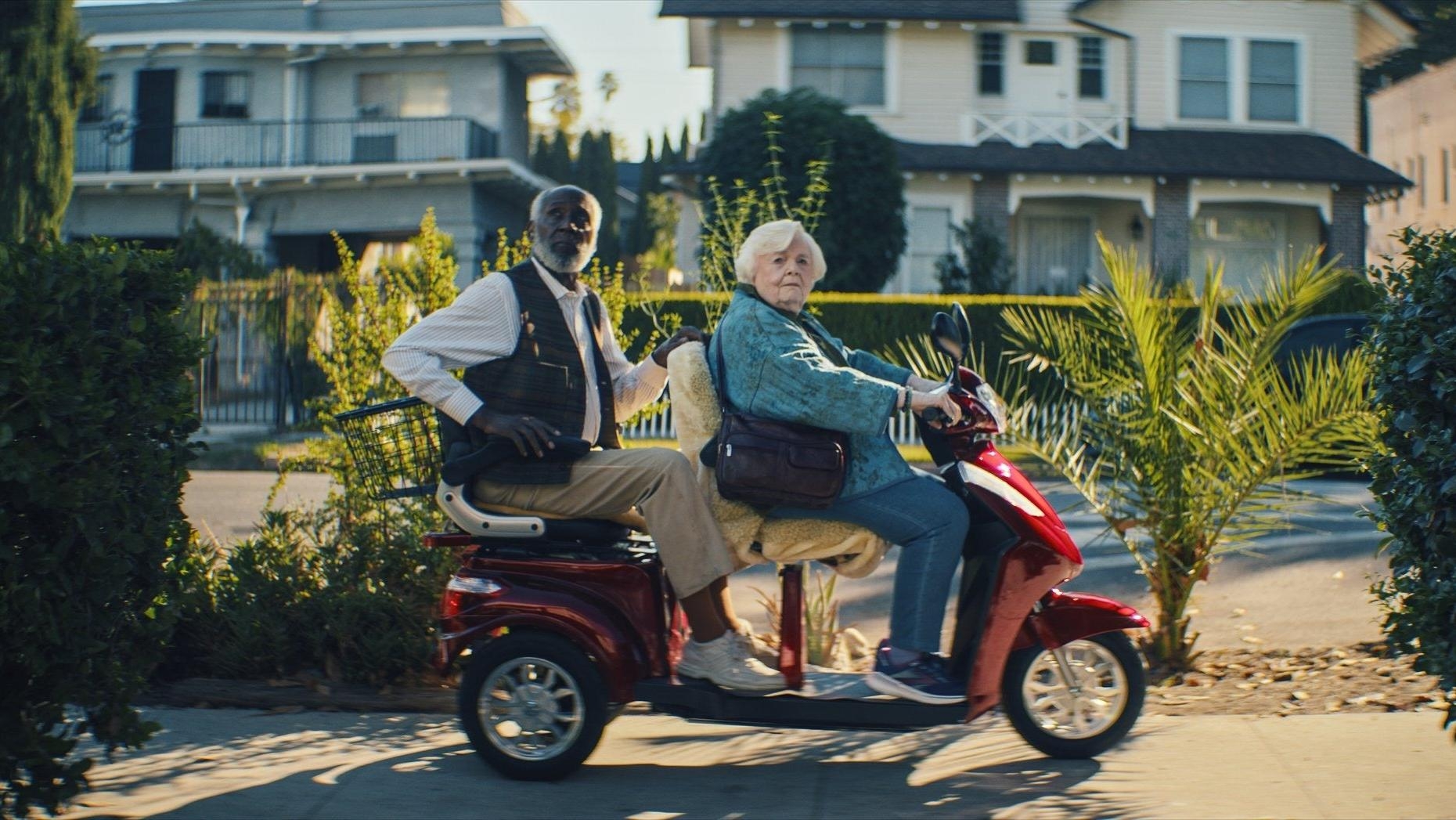Thelma review: A sweet action comedy that spans the generational divide
June Squibb proves it’s never too late to be the hero of your own story

How often does a film come along that you can comfortably recommend to literally everyone in your life? Not often enough. For that reason alone, Thelma deserves to be celebrated. It may not seem like the most obvious summer blockbuster, but it’s the rare kind of film you can watch with your parents—or your grandparents, or your kids—confident in the knowledge that you’ll all have a great time at the movies. That’s not just down to the playful action-spoof premise or the multigenerational cast, though those are both worth praising. Thelma is simply an enjoyable film with an endearing protagonist you can’t help but root for.
It helps in this case that the protagonist is played by the indomitable June Squibb (Nebraska, and many, many more). At 93 years old she capably holds down the center of this film in the title role, with a little help from the late Richard Roundtree (Shaft himself) as her longtime friend and adventuring sidekick Ben. It’s a delight to spend time with these feisty characters as they traverse the San Fernando Valley via motorized scooter on a quixotic quest to track down the thieves who scammed $10,000 out of Thelma over the phone. They bicker over the virtues of their living situations—Thelma still lives on her own, while Ben is a resident at a senior living facility—reminisce about their dead spouses, and visit an ailing friend who puts everything into perspective. It’s not until they reach their final destination that things really get heated (literally, in one of the film’s best visual gags) and Thelma gets to live out her Tom Cruise action-hero fantasy.
Meanwhile, Thelma’s daughter Gail (Parker Posey), son-in-law Alan (Clark Gregg), and 24-year-old grandson Danny (Fred Hechinger) worry over her disappearance. Danny feels responsible for losing her, since she convinced him to drive her to Ben’s place before they both gave him the slip. Danny genuinely cares for his grandmother and spends time patiently teaching her about the latest technology or keeping her company watching Mission: Impossible movies. Fresh off a break-up and unemployed, he feels stuck and stifled by his overbearing parents. There’s not much difference in the way they treat Danny and Thelma, as if neither of them can manage anything on their own. At some point, that persistent assumption became a self-fulfilling prophecy. The challenge facing both Danny and Thelma is proving they are capable of much more than anyone (particularly Gail and Alan) expects of them.
First-time filmmaker Josh Margolin—who wrote, directed, and edited the film—has said that he based the character of Thelma on his own grandmother. He came up with the idea for the script after she was duped by a phone scam years ago and he imagined her setting off on a mission of revenge. Danny is clearly a stand-in for Margolin as well. You can just picture Danny getting his act together after the end of the film and putting it all into a screenplay. The close relationship between Danny and Thelma is sweet, and their parallel journey towards autonomy—one learning to assert it and the other fighting to hold onto it—proves to be the emotional core of the film.
That core is insulated by the hilarious exchanges between Thelma and Ben and the increasingly absurd situations in which they find themselves. Even when things get out of hand, though, Margolin keeps it all in balance by grounding the characters in an authenticity that can only come from spending time with actual old folks. There are lots of little touches that add dimension to the characters, like a running gag in which Thelma keeps thinking she recognizes random strangers, or Ben playing Daddy Warbucks in an all-senior production of Annie, or the moments that aren’t played for laughs, like when they talk about all the people they know who have died. Margolin wisely stays out of the actors’ way in these scenes. He just gives them space and lets them cook.
On one level, Thelma is a fun and funny twist on the action genre. It’s an entertaining ride that lasts for a breezy 90 minutes or so. If that’s all you take away from it, that’s perfectly okay. On a deeper level, though, it has some important things to say about the final stages of life. It may make you think of words like “dignity” and “decency.” It asks you to appreciate how hard it is to hold on to your sense of self as your body and mind start slipping away. It encourages you to look at the elders around you with respect. Whichever way you approach the film, it makes for a fine summer outing for audiences of all ages.